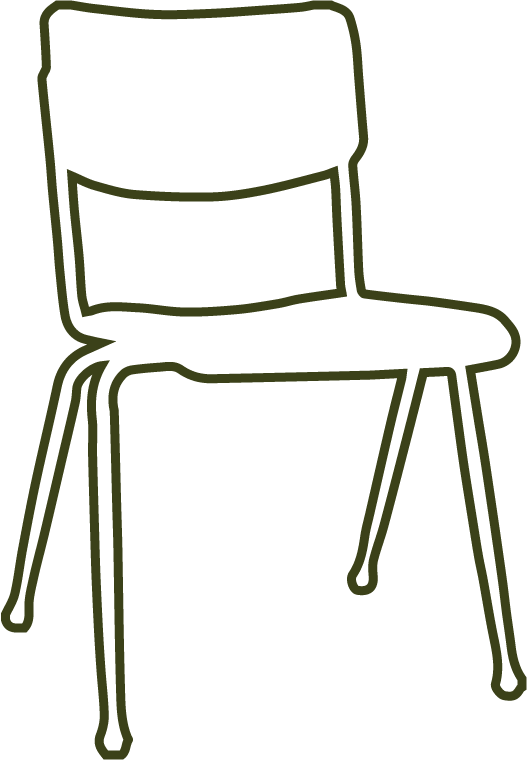Predictably, the students begin my course on silence with the belief that speaking in class is an unmitigated value, that they are failing both expression and expectation when they don’t talk. Enrollment consists, in large part, of sociology majors; a marked percentage of the students are Posse Scholars from urban communities, attending Bryn Mawr on leadership grants; almost all of them are activists, who begin the class with a heightened awareness of the damaging effects of silence—and a general resistance to the idea that silence might also have a positive valence. Most students are convinced that silence is a “bad” thing, that they—and the cultures they represent and care about—need to resist it, speak into it, intervene in its oppressive structure: “I was a shelved book…full of personal insights, suggestions, questions, and comments, but not opened or investigated.”Dan, “Listening and Silence,” September 9, 2012 (4:47 p.m.).
“Opening that book,” however, in the form of public postings on our course website, provokes several painful encounters. Students begin to acknowledge differences among themselves: only some, for example, have had access to the kind of education that gives them the power to speak and write “well,” as the term is conventionally defined.
Which means, on both sides of the equation? Further silence.
Throughout the semester, the silencing effects of speaking are—if not again shouted in the woods—repeatedly given voice, in both the classroom and our on-line forum. There’s a shared need to defend turf through voice. And yet many of the students also speak-and-write of public silence, as the result of their own internal cacophony, a “noisiness inside” that prevents them from speaking:
In response to such queries, we practice allowing pauses between our speakings, remind one another to do this, choose sometimes to be still.
ofanoriginalname, “Reading Delpit’s Words through a Third Lens: Silence,” September 16, 2012 (11:57 a.m.).
The site where these postings occur, our on-line forum on Serendip, also allows for silences between postings: it offers students both space to ignore what others say, and time to respond, without the pressure of being in the classroom together, without the expectation of an immediate response. We develop other practices, in-class and out: take turns opening each session with a structured period of silence; experiment with a range of written forms in which silence is marked; play with the “force of embedded silence: asterisks, gaps” in collagesPeter Elbow, “Silence: A Collage,” in Everyone Can Write: Essays Toward a Hopeful Theory of Writing and Teaching (New York: Oxford University Press, 2000), 175.; try out various forms of “blackout poetry,” an exercise of eliminating all unnecessary words in a sheet of newsprint.HSBurke, “Web Event #2: Silenced by a Lack of Silence,” September 23, 2012 (9:53 a.m.). The students surround their visualizations and descriptions of silence with silence, reducing them to a single noun, verb, adverb. They rewrite essays into poems, culling the words with weight, the phrases with presence, letting the connections between them fall silent.
The books we are reading also repeatedly invite students to re-value such silences, to admit that they should not seek to clarify some of their confusions in listening, as well as in reading. Some gaps mark power differentials that need to be respected; some of them function as needed interventions in structures of privilege.
I, Rigoberta Menchu is instrumental in highlighting our need to acknowledge our limits as knowers. Prodded by Doris Sommer, who explains that “books can sting readers who feel entitled to know everything as they approach a text,” that “the slap of refused intimacy from uncooperative books can slow readers down,” my students and I have difficulty laying down our conviction that we “deserve to know.” Sommer argues compellingly that Menchu’s “inhospitality toward the reader” serves an important pedagogical function: it “merits a pause long enough to learn new expectations.”Doris Sommer, “Advertencia/Warning,” in Proceed with Caution, When Engaged by Minority Writing in the Americas (Cambridge: Harvard University Press, 1999), xiii.
…for human beings, not to speak is to die.
—Pablo Neruda, “The Word”
…listen for the breakdown of syntax… . I am interested in the lack of words…in the gaps…not in what has been fully articulated, but in what is in the process of being articulated…in the very moment that the smooth-sounding words fail us.
—Anna Deavere Smith, Fires in the Mirror

 Sasha
Sasha Dan
Dan Owl
Owl Chandrea
Chandrea HSBurke
HSBurke Erin
Erin Couldntthinkofanoriginalname
Couldntthinkofanoriginalname